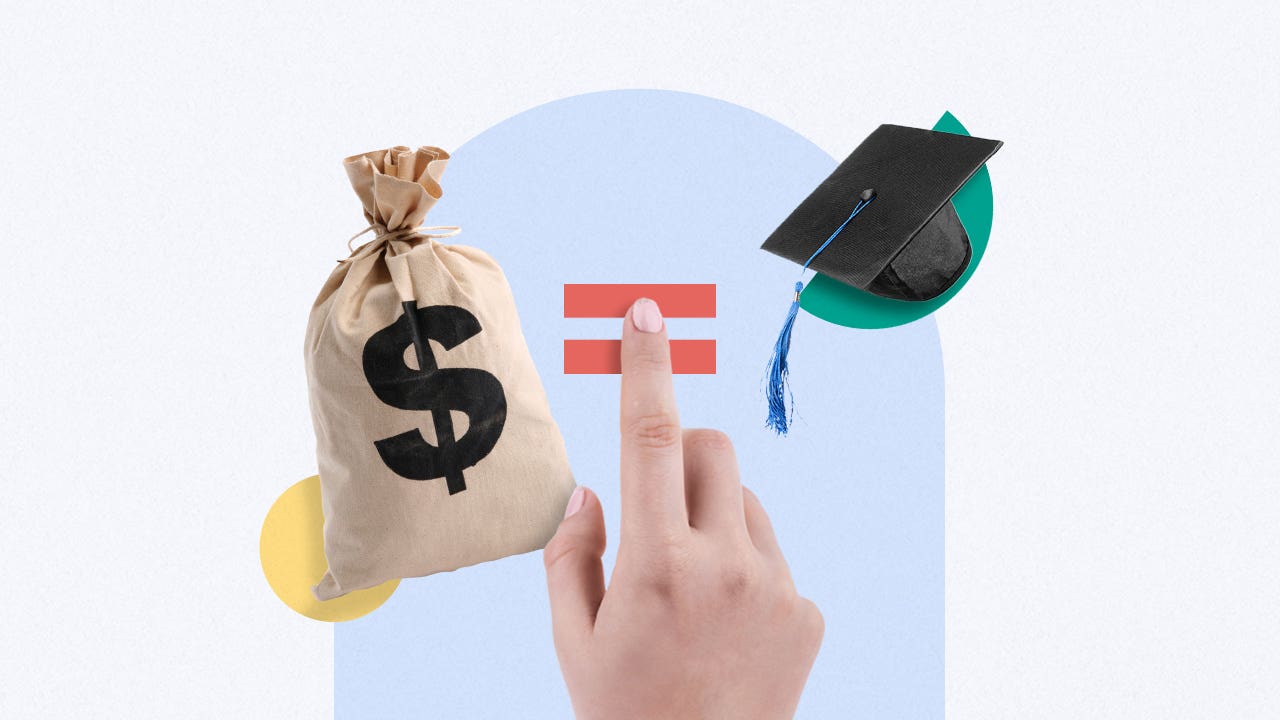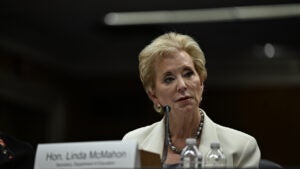The state of student loan forgiveness: What borrowers need to know

In the news
Key takeaways
- Despite a ruling against Biden’s student loan forgiveness program in 2023, the administration continues its effort to provide relief for student loan borrowers.
- Under the Higher Education Act, Biden has forgiven millions in federal debt by amending existing relief and forgiveness programs.
- As of September 2024, The Biden-Harris Administration has provided $168 billion in debt relief to about 4.7 million student loan borrowers.
In the summer of 2023, the Supreme Court ruled to strike down Biden’s student loan forgiveness program, which would have canceled up to $20,000 of debt for roughly 43 million eligible borrowers. However, that hasn’t stopped the Biden-Harris administration from canceling student debt for millions of borrowers across the country.
Student loan forgiveness may not be completely off the table for you just yet. If you have federal student loans and qualify for any alternative or income-driven repayment plan, you may be eligible for cancellation.
Why the Supreme Court struck down Biden’s student loan forgiveness plan
The Supreme Court ruled in a 6-3 decision that the Biden administration does not have the authority to forgive student loans to this wide of a degree without an act of Congress.
The decision, announced on June 30, 2023 and written by Justice John Roberts, Chief Justice of the United States, says, “The HEROES Act allows the Secretary [of Education] to ‘waive or modify’ existing statutory or regulatory provisions applicable to financial assistance programs under the Education Act but… does not allow the Secretary to rewrite that statute to the extent of canceling $430 billion of student loan principal.”
The Supreme Court said such an expensive and broad plan couldn’t use the in-place policy to deal with national emergencies. The HEROES Act was originally meant to financially protect service members while they fought in Afghanistan and Iraq but was used during the COVID-19 pandemic for actions such as the pause on student loan payments.
The Supreme Court ruled that Biden couldn’t use the Act to provide such widespread cancellation during a national disaster. “Six States sued, arguing that the HEROES Act does not authorize the loan cancellation plan. We agree,” Roberts wrote.
Moving forward, similar broad forgiveness plans would need to be approved by Congress. However, this mandate doesn’t apply to the dozens of executive orders that Biden has made through pursuing alternative forgiveness paths.
A new path to student loan forgiveness
The Biden-Harris Administration in July announced a new debt relief effort under the existing Higher Education Act. Projected to bring partial or full forgiveness to around 25 million federal student loan borrowers, the plan impacted the following groups of borrowers:
- Borrowers who owe more now than they did when they first started repayment.
- Borrowers who have at least one undergraduate loan that’s been in repayment for at least 20 years.
- Borrowers who have at least one graduate loan that’s been in repayment for at least 25 years.
- Borrowers who would be eligible for forgiveness though income-driven repayment (IDR) but haven’t yet applied.
- Borrowers who attended an institution that provided low financial value or failed to meet the Education Department’s accountability standards.
This plan was making its way through the negotiated rulemaking path, with final guidelines expected this fall. But in September, seven Republican-led states headed by Missouri filed a lawsuit attempting to halt the plan. They claim the plan exceeds the Education Department’s legal authority and that the Education Department “has quietly instructed federal contractors to ‘immediately’ begin cancellation as early as September 3, 2024” rather than completing the rulemaking process first.
Most recently, a Georgia district judge allowed a temporary restraining order against the plan to expire and ordered that the case be transferred to Missouri.
To date, the Biden-Harris administration has been able to approve $168 billion in federal loan cancelation for roughly 4.7 million borrowers. Most of this relief has come from revamping existing forgiveness programs and alternative repayment plans, namely Public Service Loan Forgiveness (PSLF) and income-driven repayment (IDR) plans.
What’s next for borrowers
Federal student loan borrowers need to stay in-the-know about federal student loan relief policies, regardless if they think they qualify or not. Information can be found on the Education Department’s website and through regularly checking student loans-related news.
It’s important that federal student loan borrowers hold off on refinancing with a private student loan at least until the 2024 election, if possible. When you refinance, you lose all of your federal benefits and relief potential.
With Biden making so many changes, it’s possible that you could be eligible for debt relief in the near future. There’s also a chance that you’re already eligible and are leaving student loan forgiveness on the table.
Check with your federal student loan servicer to see the current status of your loans and what you may qualify for.
Why we ask for feedback Your feedback helps us improve our content and services. It takes less than a minute to complete.
Your responses are anonymous and will only be used for improving our website.






